Radical cleric and wanted terrorist Anwar al-Awlaki was killed Friday in Yemen in what news reports say was a coordinated air strike by the U.S. Central Intelligence Agency. This U.S. government-funded Voice of America report takes a look at the life of the American citizen who became a prominent al-Qaida figure.
Middle East & North Africa Archive
Free Newsletter
The much-anticipated announcement by Egypt’s ruling military council of a schedule for the nation’s first post-revolution parliamentary elections was met with dismay by a wide range of political parties, from the Muslim Brotherhood to the liberal Ghad Party to the conservative Freedom and Justice Party. In all, more than three dozen parties are saying they plan to boycott the elections, the first round of which is slated for Nov. 28, on grounds that the timeline for voting unfairly stacks the deck in favor of former political allies of ousted President Hosni Mubarak. While no one is actually running under Mubarak’s […]
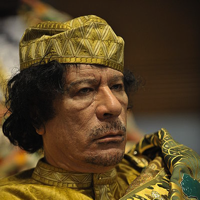
With the remaining loyalists of Moammar Gadhafi’s deposed regime facing their inevitable demise, it comes as no surprise that human rights organizations and international journalists are finding a multitude of mass graves and ample evidence that torture was a routine affair in Gadhafi’s Libya. But as Gadhafi’s bloody excesses return to the spotlight, so too does the corruption and cynicism exhibited by the regime’s fellow travelers from beyond Libya’s borders. It is well known that under Gadhafi, the country consistently maintained its place among the world’s “Worst of the Worst” violators of human rights and political freedoms. And yet, in […]
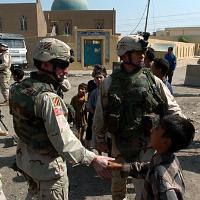
What future does the United States Army face? During eight years of operations in Iraq and 10 years in Afghanistan, the Army has shifted from being a force focused on high-intensity conventional operations to one more comfortable fighting a dispersed enemy intermingled with the population. However, operations are winding down in Iraq, and an endpoint seems to be nearing in Afghanistan. Armed with the collective experience developed in the War on Terror, how will the Army move forward to face new challenges and threats? The answers involve political and military considerations that may contradict each other. The fact that the […]
Iran recently joined Russia in expressing concern about negotiations among the European Union, Azerbaijan and Turkmenistan over a proposed trans-Caspian pipeline. In an email interview, Gawdat Bahgat, a political science professor at National Defense University, discussed diplomacy among the Caspian littoral states. WPR: What are the main issues facing the Caspian littoral states in terms of maritime boundaries and resource rights? Gawdat Bahgat: Though the Caspian region does not have the massive proven oil and gas reserves the Persian Gulf region holds, Azerbaijan, Kazakhstan and Turkmenistan have proven themselves as major energy producers and exporters. The intense disagreement over maritime […]
With Syria’s crackdown on democracy activists now in its seventh month, serious questions have begun to arise over the extent to which a militarized faction of the protest movement may, or may not, be able to mount an armed revolt against the government of President Bashar al-Assad. Reports this week honed in on a group of recently defected Syrian military soldiers and officers calling themselves the Free Syrian Army. While the group has created a presence online, according to Joshua Landis, the author of Syria Comment, a leading English-language blog on Syria, it now faces a true test in attempting […]
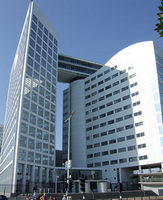
Nine years after its launch in July 2002, the International Criminal Court has made a promising though problematic start. Some of its difficulties are inherent in its mission and context. Others have been generated by states’ and officials’ behavior. Carrying out the court’s mandate to prosecute the perpetrators of humanity’s worst crimes would be difficult even in ideal circumstances. Circumstances are not ideal: The ICC is an international organization that many important states have not joined; it commands a limited budget; it is subject to the political and personal foibles common to international organizations; and finally, its independence is constrained […]
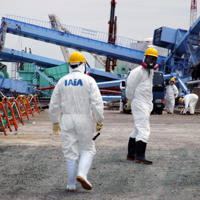
As the International Atomic Energy Agency held its Board of Governors meeting and annual General Conference over the past two weeks, the members of this often-overlooked United Nations body found themselves thrust again into the public limelight and burdened with a rapidly expanding agenda. Governments jousted over how to craft new approaches to deal with the aftermath of the nuclear accident at Fukushima, divvy up the agency’s budget and deal with controversial nuclear programs in the Middle East. The debates took place among a membership bitterly divided between those states with advanced nuclear capabilities and those that lack them, divisions […]
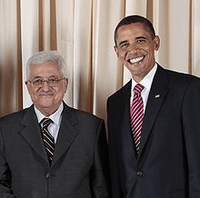
In an effort to defuse the short-term crisis generated by the Palestinian push for United Nations recognition of a Palestinian state this week, French President Nicolas Sarkozy has offered a compromise proposal: a “precise timetable” of negotiations under the aegis of the Quartet that would produce a final status agreement between Palestinians and Israelis in a year’s time. The proposal’s utility as a practical means of generating an actual solution is minimal, but it could represent a face-saving off-ramp way for the U.S. from the current confrontation. On paper, setting deadlines for negotiations makes sense. But in the real world, […]
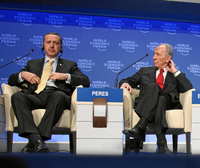
At first sight, ideology readily suggests itself as the main explanation for Turkey’s redefinition of its relations with Israel. After all, the gradual rift and impending breakdown of strategic relations between the two countries began once the moderately Islamist Justice and Development Party (AKP) rose to power in Turkey. Upon closer examination, however, other factors are more fundamental in accounting for the split. Simply put, Turkey no longer needs Israel. This change is related less to the Turkish government’s Islamic ideology and more to geopolitical trends and a concomitant shift in the global and regional balance of power. While ideology […]
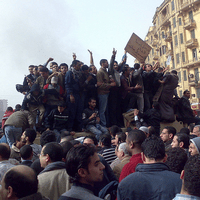
When Mohamed Bouazizi set himself on fire in his Tunisian village last December, nobody knew he would electrify the entire Arab world and send the existing political order in the region into a long period of turmoil. Very quickly, however, there were signs that the success of Tunisian demonstrators in toppling their long-ruling dictator had sparked something important — something with probably lasting, although unclear consequences. As the first signs emerged that the movement might catch on elsewhere in the region, a catchy label derived from Czechoslovakia’s brief Cold War-era uprising against Soviet rule quickly engraved itself in the Western […]
The recent announcement by Turkey of a new vision for the Middle East to be built upon a burgeoning alliance with Egypt raises the question of whether such a partnership could be realistic in the years ahead. Turkey’s desire for such a partnership was evident in the bold description provided last weekend by Foreign Minister Ahmet Davutoglu, who called for an “axis of democracy” anchored upon the region’s two biggest nations. However, the extent to which Egypt may be willing to embrace such an alliance is far from certain, says Michele Dunne, director of the Atlantic Council’s Rafik Hariri Center […]
European countries have been accused of ignoring the refugee crisis on Libya’s borders. This report produced by the U.S. government-owned Voice of America explores the fate of hundreds of thousands of mainly sub-Saharan migrants who were forced to flee Libya following the brutal crackdown on anti-government protests earlier this year.
The Turkish navy recently increased its patrols in the Mediterranean, against the backdrop of rising tension with Israel. In an email interview, Bill Park, a senior lecturer in the department of defense studies at King’s College London, discussed the Turkish navy. WPR: What is the current state of the Turkish navy? Bill Park: The manpower strength of the Turkish navy stands at around 55,000, about half of whom are conscripts. At root it is configured as a coastal defense navy, and as such possesses 14 submarines and numerous fast-attack vessels, mine-warfare craft and coastal-patrol vessels. It also has in excess […]
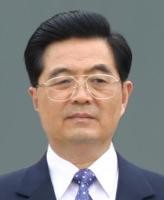
BEIJING — Hamstrung by domestic sensitivities and an inadequate institutional framework for managing its proliferating overseas interests, China has found itself behind the curve on Libya. Beijing’s response has revealed the disparate interest groups within its foreign policy apparatus and the challenges it faces when responding to international events. Despite previous progress, China’s foreign policy apparatus needs to become more adroit at public positioning and more discrete and institutionally consistent in its private diplomacy to secure its international rise. Last Monday,* Beijing became the last major economic power to recognize Libya’s National Transitional Council (NTC), 10 days after Russia did […]
